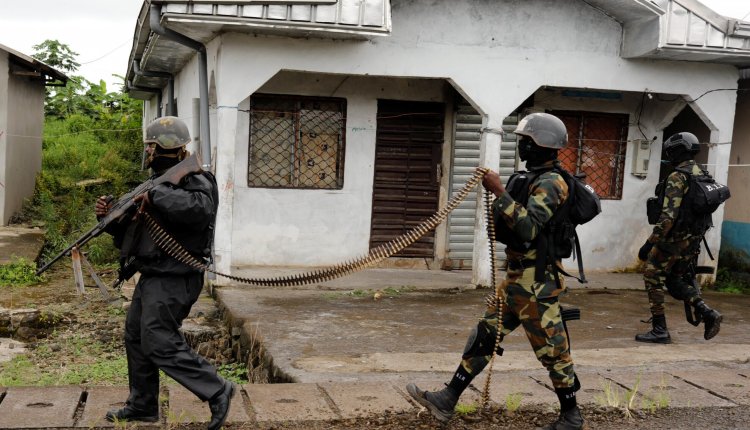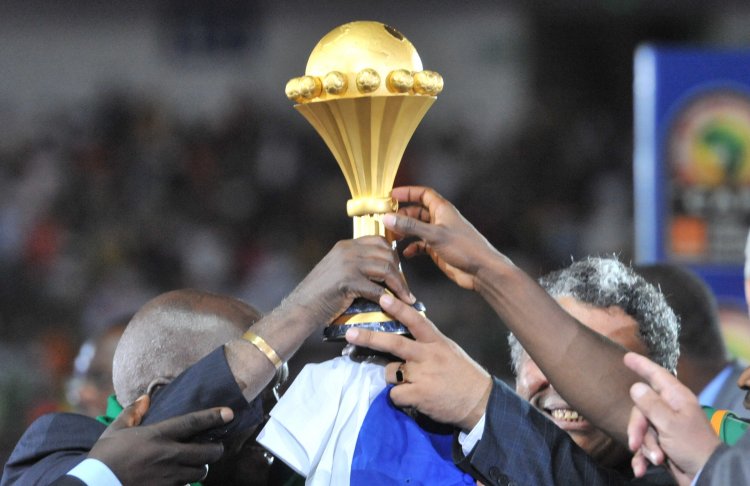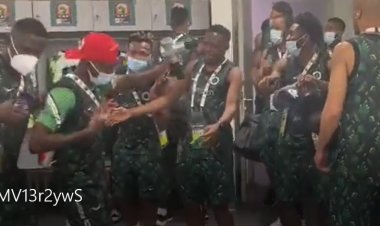Nigeria, NFF warned of possible attack by Cameroon rebels in Garoua
More than 3,000 people have been killed and 700,000 forced from their homes since violence erupted in 2017.

The Federal Government of Nigeria and NFF has been warned of possible rebels attacks in Garoua where group D (comprising Egypt, Nigeria, Sudan and Guinea-Bissau) matches of AFCON which begins on Sunday are being hosted.
Apart from the Super Eagles players and their officials, journalists, thousands of Nigerian football fans will be in Garoua to cheer the Super Eagles because of the city's proximity to Nigeria.
Garoua is just three hours from Yola, Adamawa State in the North-East geopolitical zone Nigeria.
The report by The Times of London Africa correspondent posited that security forces may well outnumber fans in some cities hosting the AFCON against a backdrop of the worsening liberation war.
Rebels have threatened to disrupt matches in the country’s conflict-torn southwest region, where English-speaking armed groups are fighting for a breakaway state in the largely Francophone country.
Militants have sent warnings to the four teams who will be based in the hotspots of unrest, among them Mali, whose players include Brighton & Hove Albion’s Yves Bissouma and Southampton’s Moussa Djenepo.
Violence has intensified in the past year with separatists adding explosives to their arsenal of homemade rifles and cutlasses.
More than 3,000 people have been killed and 700,000 forced from their homes since violence erupted in 2017.

Cameroon’s hosting of Africa’s most famous football stars presents the rebels with their first high-profile opportunity to push for their own homeland, the so-called Ambazonia.
“[The rebels] are serious about attacks ... it is a horrible situation,” said Rebecca Tinsley from the Cameroon Peace and Justice group, which is concerned about fans getting caught up in their attacks or in-state crackdowns.
The coastal town of Limbe, where the Omnisport Stadium will host matches from group F comprising Tunisia, Mali, Mauritania and the Gambia, was struck by a blast last week.
The southwest regional capital of Buea, where some training camps are based, was also the target of two explosions in November by secessionists that denounced the planned staging of games. The Afcon’s mascot, Mola the lion, wore a bulletproof vest and had an armed guard during a recent publicity tour of the Anglophone area.
Beyond the cities threatened by secessionists, security forces are also on high alert for opportunist attacks linked to a separate, Islamist conflict that has engulfed the government of President Biya, 88, Africa’s oldest leader.
In Cameroon’s far north, on its border with the troubled Lake Chad region, fighters aligned to Boko Haram and Isis are determined to establish sharia. There is concern that the jihadists could grab attention by striking in the capital, Yaoundé, the economic hub Douala or the most northern stadium in Garoua where group D (comprising Egypt, Nigeria, Sudan and Guinea-Bissau) are being hosted.
Though the threat of civil war is relatively recent, resentment has festered between Cameroon’s English and French speakers since the populations were thrown together in the post-colonial era. The separatist cause is complicated by multiple splinter groups who are at odds over whether teams competing at Afcon are legitimate targets.
“The Ambazonian Governing Council warns of the damning effects liable to befall all football delegations and related officials if they choose to participate at the event,” one faction threatened in a statement to local media, while other rebels have called for a boycott of their region.
Officials have insisted they will deliver a peaceful tournament with stricter security measures in place than when Cameroon hosted the more modest African Nations Championship a year ago, when bombs exploded near the stadium in Limbe, injuring security forces.
The opening match will be played in Yaoundé at the brand-new Paul Biya stadium, named after the president who is serving his seventh term.





















